
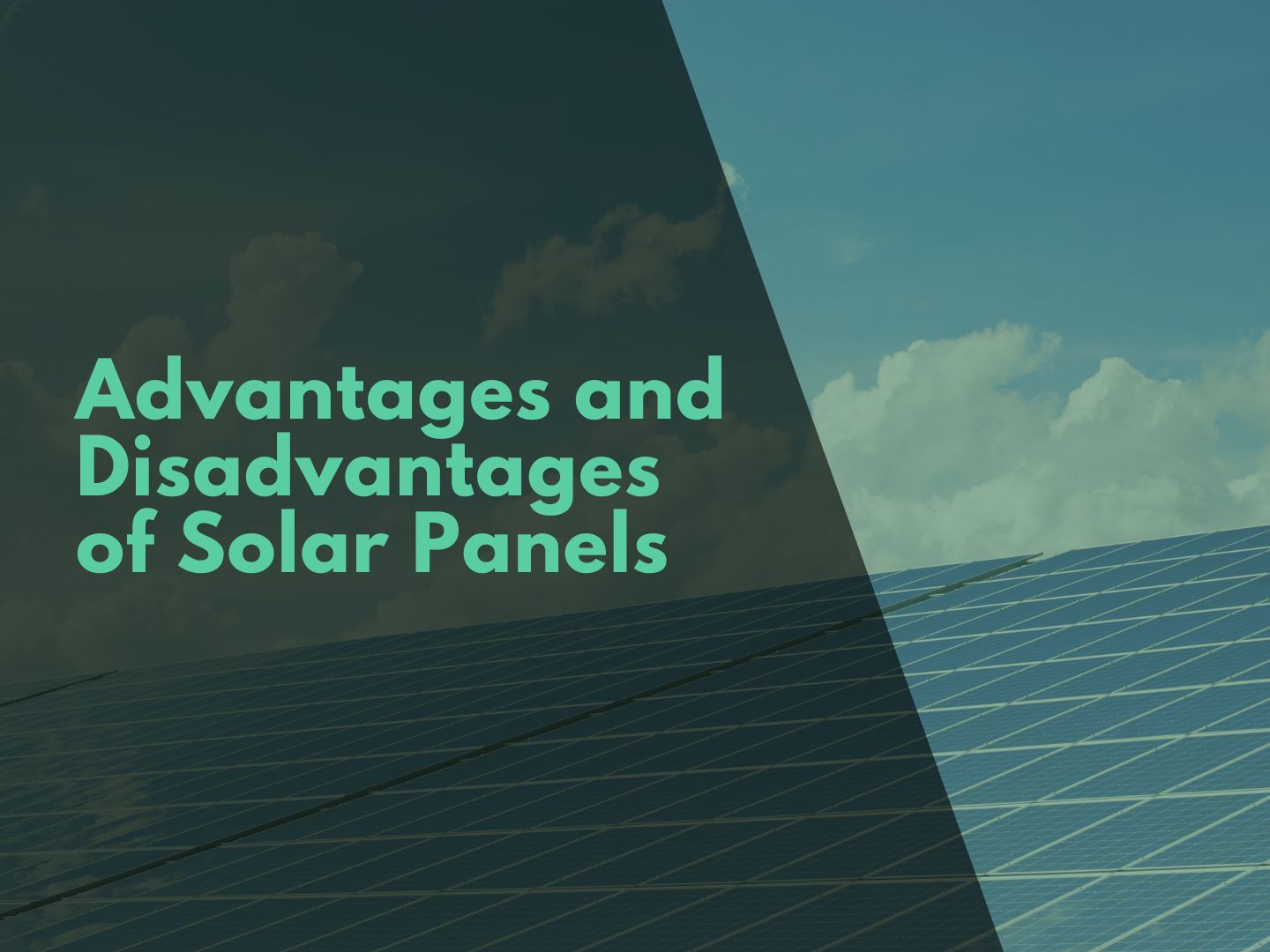
Solar energy is booming, and rightly so; it's an abundant source of clean energy that seems to solve a host of environmental and energy issues. This growth highlights the significant advantages of solar energy, such as its ability to reduce carbon footprints and offer renewable, nearly inexhaustible power to the global population.
But are they the golden ticket they're made out to be?
Sure, tapping into the power of the sun feels like a no-brainer—it's free once you've got the set-up, after all. But before you shout from the rooftops and slap panels on every sunny surface, it's worth taking a look at the whole picture, including both the sunny sides and the potential cloud cover.
One thing is for sure: investing in solar panels might have you digging deep initially, but they can significantly reduce your energy bills in the long run, showcasing one of the many compelling advantages of solar energy. Let's dive right in...
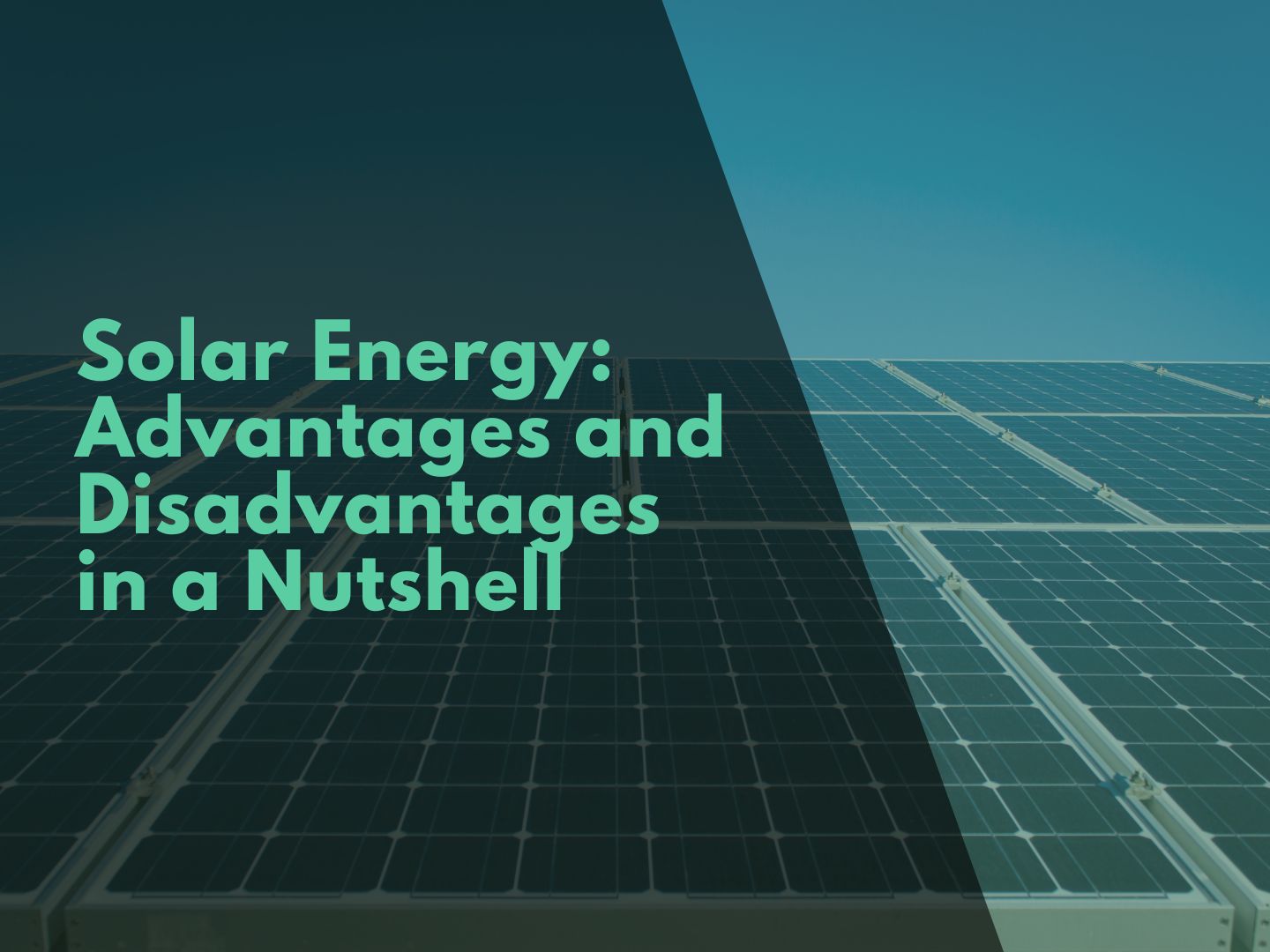
Solar energy, while burgeoning as a promising solution to many global energy and environmental challenges, comes with its own set of advantages and disadvantages. Let's take a look:
While solar energy presents a compelling case for reducing utility bills and contributing positively to the environment, potential adopters should consider the initial costs, aesthetic preferences, and property characteristics before making a decision.
Nonetheless, the long-term benefits and advancements in solar technology continue to make it an increasingly attractive option for many homeowners.
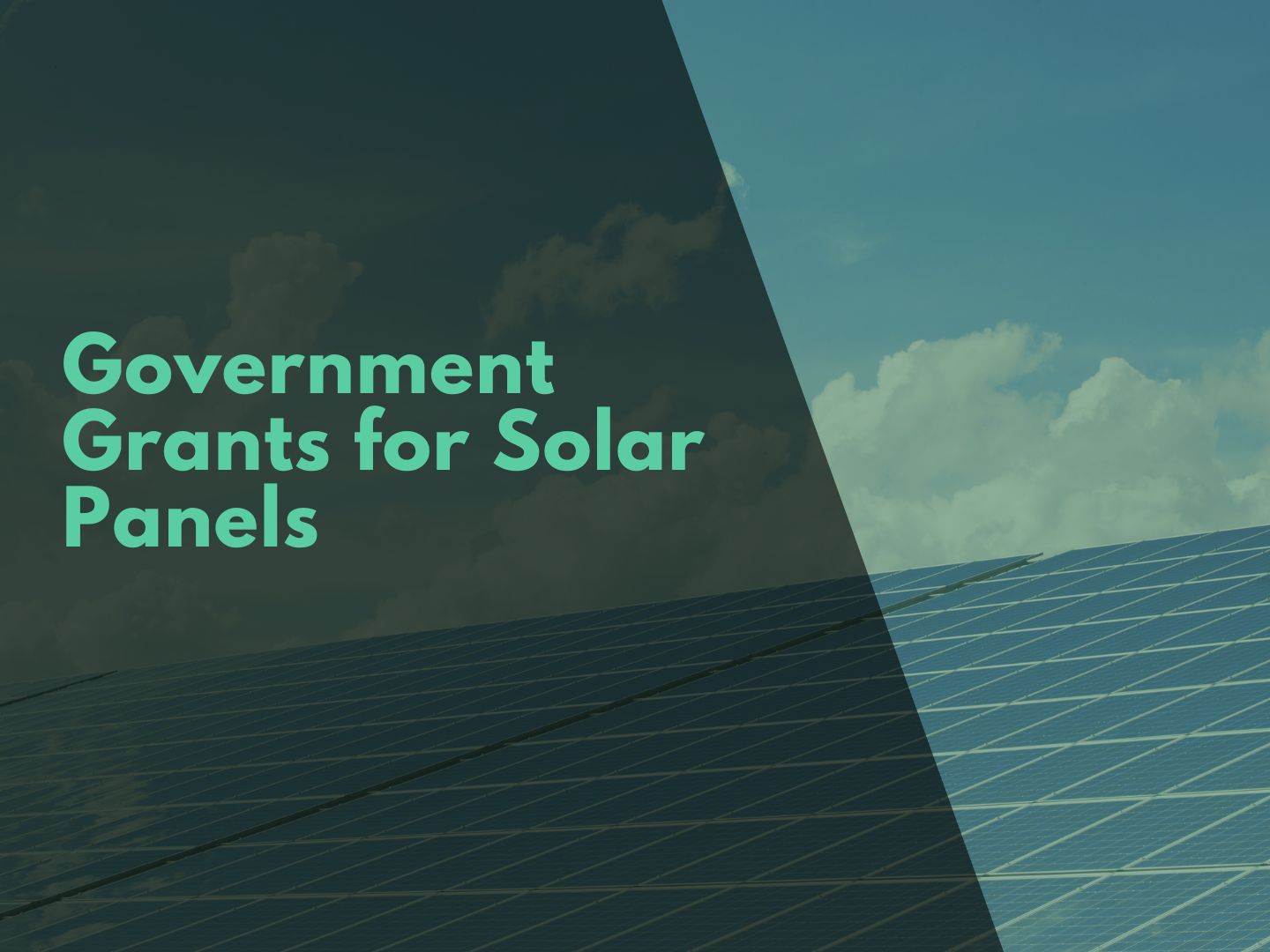
When you explore solar technology, you might initially be taken aback by the financial investment required. However, it's important to remember the numerous benefits of solar panels, which extend beyond just energy savings.
Beyond the initial costs and potential disadvantages, there are grants and schemes available that can significantly reduce the financial burden. These incentives are designed to promote the adoption of solar energy by making it more accessible to a wider audience.
Let's take a closer look at these financial aids to better understand how they can offset the cost and enhance the benefits of solar panels for your home or business.
Ever thought you could make money by generating your own electricity? Yeah, it sounds wild, but hear this out.
Under the Smart Export Guarantee (SEG), if you've got solar panels and you're producing more energy than you're chugging, you can flog that surplus back to the grid.
Different suppliers will offer different rates, so you'd want to shop around to find yourself the best deal.
| Feature | Details |
|---|---|
| Eligibility | Owners of solar panels in the UK |
| Benefit | Sell excess energy back to the grid |
| Energy selling rates | Vary between suppliers; always compare |
| Suppliers participating | Majority of large energy suppliers in the UK |
| Timeframe | Available as long as you're generating surplus renewable energy |
You've probably heard about the ECO4 scheme, but what's the real deal?
It's like this big pot that's been stewed up to help you pay for energy efficiency improvements if the cost's giving you the sweats.
From late 2022 to 2026, it's focusing on insulation and low carbon heating upgrades. And yes, you guessed it, that includes solar panels in some cases.
ECO4 Scheme:
| Feature | Details |
|---|---|
| Duration | 2022–2026 |
| Coverage | Insulation, low carbon heating upgrades (may include solar panels) |
| Eligibility | Low-income households, certain benefits recipients |
| Objective | Reduce carbon footprint, tackle fuel poverty |
| Application process | Contact energy suppliers or look for local schemes under ECO4 umbrella |
| Pros | Cons |
|---|---|
| Grant support for installation cost | Additional measures may be required to qualify |
| Reduced energy bills over time | Funding caps may apply |
| Positive step for the environment | Schemes can be complex and vary by region |
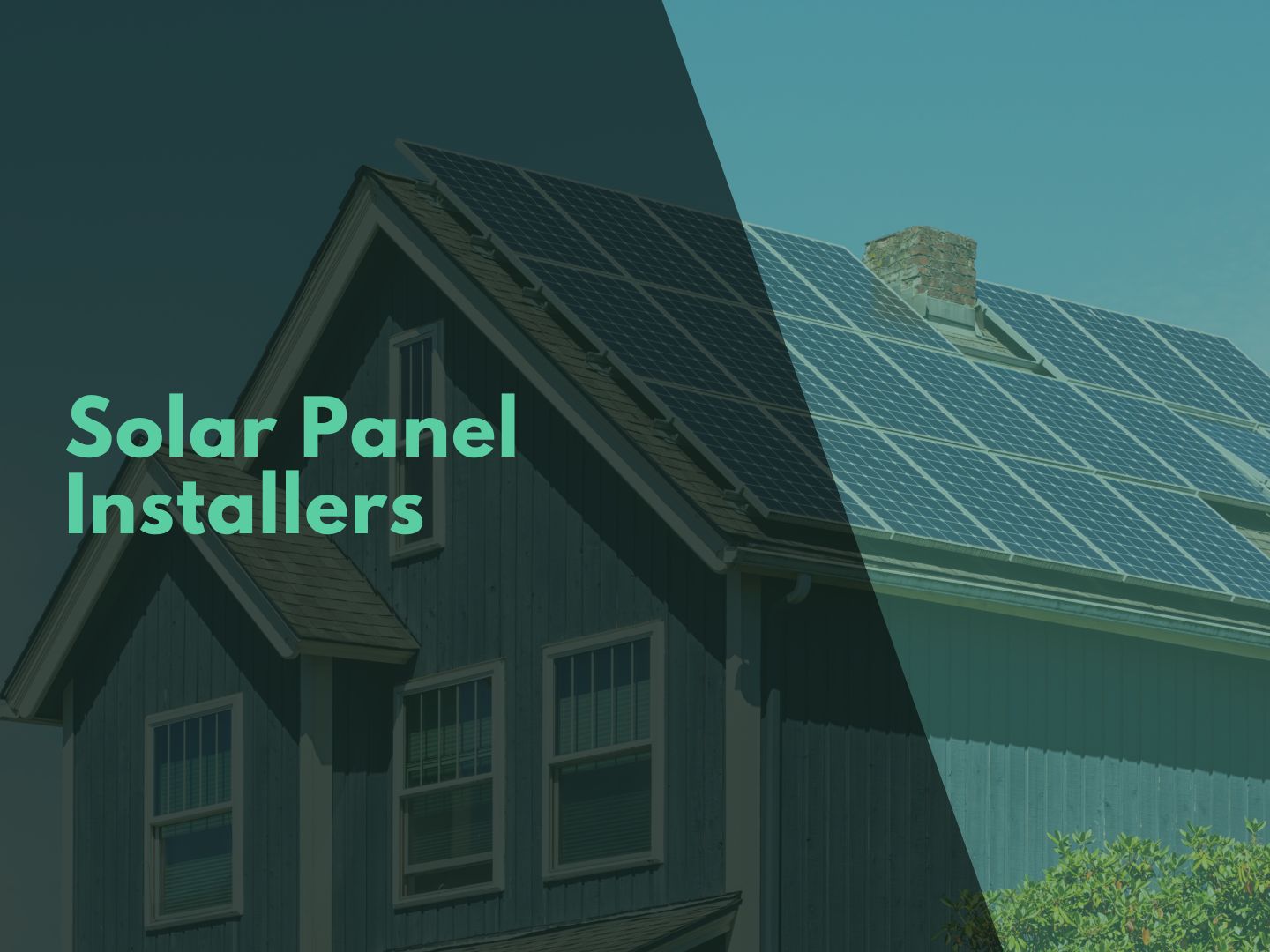
So you’re thinking about getting solar panels? Brilliant! The first step is to find the best solar panel installers.
How do you go about it, though?
Look for solar panel experts with solid reputations, certifications, and plenty of experience. They should know their mono-crystalline from their poly-crystalline, and assess your roof's suitability. After all, you want the job done right.
Pros:
Cons:
And here's a nugget for you: doing your own solar panel installation could invalidate warranties or breach regulations.
You’ll want to think twice about that.
| Factor | Details |
|---|---|
| Accreditation | Look for MCS-approved installers. No messing about – it’s a must. |
| Quotes | Get at least three quotes to compare. And don't be shy to haggle! |
| Reviews | Snoop around online. What’s the word on the street about their work? |
| Warranties | A good installer offers solid warranties. Check the fine print! |
| Lead times | How soon can they start? You don't want to be waiting till the next blue moon. |
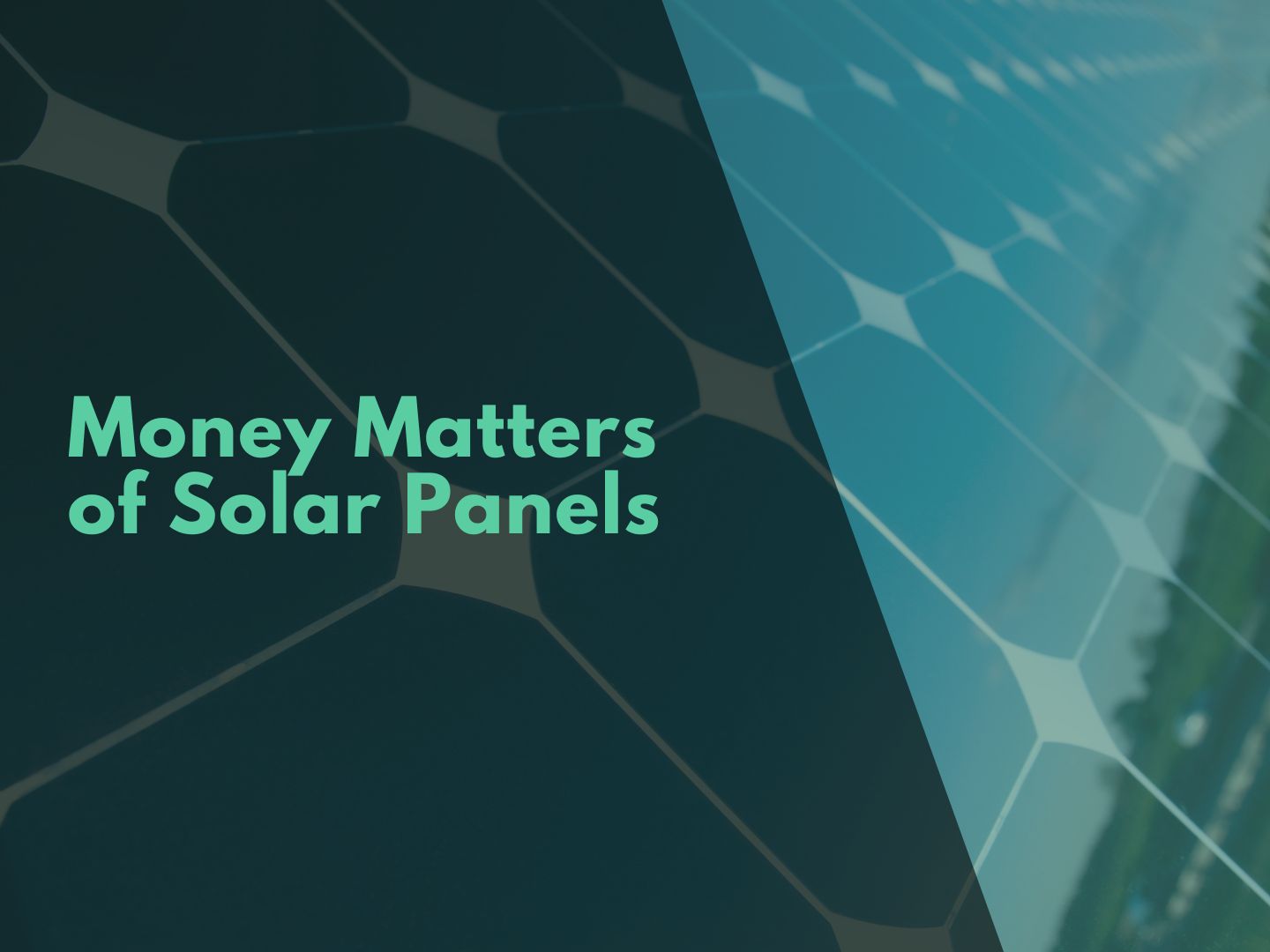
Investing in solar panels impacts your pocket in various ways. Below, you'll find specifics on the initial outlay, available subsidies, and the potential for long-term financial gain.
You're shifting to solar, but what’s the damage to your wallet? Initial expenses include:
But here's the brighter side. Various government solar panel grants can lighten the load. The UK government’s schemes might chip in, so keep your ear to the ground for the latest incentives.
| Expense Item | Average Cost (£) | Potential Incentives |
|---|---|---|
| Solar Panel Purchase | 4,000 - 8,000 | Solar Panel Grants, Rebates |
| Installation | 1,500 - 3,000 | - |
| Additional Equipment | 500 - 1,000 | - |
| Total Upfront Investment | 6,000 - 12,000 | Can be offset by incentives |
Let's talk about the long run. Your electricity bills? They could plummet, thanks to solar. It's a game of patience but the return on investment can be very attractive:
Potential Savings
| Description | Timeframe |
|---|---|
| Electricity Bills | Reduction of up to 50% or more Monthly |
| Property Value | Increase of around 4% At time of sale |
| Export Earnings | Variable, depending on export rate Per kWh exported |
Now, weigh up your options. On one hand, solar panels slash bills and attract incentives. On the other hand, that initial investment is not exactly small change. So, what's the verdict?
Pros:
Cons:
| Consideration | Pros (+) | Cons (-) |
|---|---|---|
| Short-term Cost | Solar panel grants, Tax reliefs | High upfront cost |
| Long-term Savings | Significant reduction in electricity bills | Savings realised over time |
| Return on Investment | High potential in the long-term | Subject to energy production, weather |
| Energy Independence | Reduces reliance on the grid | Initial dependence on installation quality |
| Environmental Impact | Reduces carbon footprint | Manufacturing footprint of panels |

Understanding the environmental impact of solar panels can be quite the balancing act. You've got to weigh up the carbon cuts against the manufacturing footprint.
Solar panels leap towards reducing carbon footprint. By using renewable energy from the sun, they diminish reliance on fossil fuels, cutting down greenhouse gas emissions.
Each kilowatt-hour of solar power significantly lowers carbon dioxide in the atmosphere. How magnificent is that?
| Aspect | Details |
|---|---|
| Energy Source | Renewable (Sun) |
| Reduction in CO2 | Significant per kWh |
| Fossil Fuel Dependence | Lowered |
| Long-term Impact | Positive for Carbon Footprint |
But it ain't all sunshine and rainbows:
The environmental impact of manufacturing solar panels does raise some eyebrows. Think about it: mining for materials, transport, and disposal. It adds up.
| Manufacturing stage | Environmental impact |
|---|---|
| Material Extraction | Increased emissions |
| Transportation | Carbon footprint |
| Disposal | Potential harm |
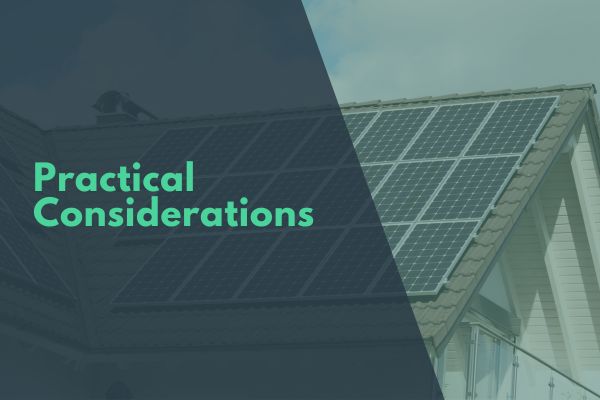
When you're mulling over solar panels, you've got to consider more than just the savings on your energy bills. Let’s look at some nitty-gritty details that you should weigh up.
Sure, solar panels are touted as low maintenance, but what does that really mean for you?
| Aspect | Frequency | Notes |
|---|---|---|
| Professional Cleaning | Biannually | More if you live somewhere dusty |
| Inspection | Annually | To catch any issues early |
| Inverter Check | Every 5–10 years | Key to convert solar to usable energy |
The efficiency of solar panels is significantly influenced by the weather.
| Weather Condition | Effect on Solar Panels | Notes |
|---|---|---|
| Clear Skies | High Efficiency | Optimal condition for energy production. |
| Overcast | Reduced Efficiency | Production continues, albeit at reduced rates. |
| Rain | Cleans Panels | Rain can help clean the panels, potentially improving efficiency afterwards. |

To sum it all up, solar panels offer a mix of good points and challenges. On the plus side, they can cut down your electricity bills, help the environment by reducing carbon emissions, and are powered by the sun, which is a clean energy source. Installing them is getting easier and can be a smart choice for many homes.
However, there are some things to think about before you decide. The initial cost can be high, how much power you get can depend on the weather, and not every house is a good fit for solar panels due to shading or roof direction. Plus, some people might not like how they look on their roof, although newer designs are less noticeable.
Financial help like grants and schemes can make solar panels more affordable, and over time, they can actually save you money by lowering your energy bills. Also, being able to sell extra power you don't use back to the grid is a bonus.
Overall, solar panels have a lot to offer for saving money and protecting the environment. It's worth looking into if they're right for your home, considering both the immediate costs and the long-term benefits.

According to the Energy Saving Trust, a typical solar photovoltaic (PV) system can produce over 60% of the electricity needs of a family home, leading to savings of around £650 per year on energy bills. However, the exact savings depend on factors like system size, orientation, and your home's energy consumption habits.
According to Harvard Business Review, the production of solar panels generates greenhouse gases and uses hazardous materials. However, the Union of Concerned Scientists notes that the environmental impacts are still lower compared to fossil fuel-based electriczity over the lifespan of solar panels.
Solar panels have minimal maintenance requirements, but regular cleaning is essential, especially in the UK's often cloudy and rainy climate. Energy Saving Trust recommends cleaning UK solar panels 2-4 times per year to remove dirt, pollen and bird droppings that can impact efficiency. Aside from cleaning, The Eco Experts note annual maintenance costs of around £200 for a typical UK home system to cover inspection and minor repairs. With minimal moving parts, solar panels require little other routine upkeep in the UK climate.
According to SEIA, solar panels work even when light is reflected or partially blocked by clouds, though at reduced efficiency of 10-25%. In the UK's often cloudy weather, solar output may be lower, but solar is still a viable option, especially when combined with energy storage solutions like batteries.
Research by Zillow found solar homes sell for 4.1% more on average. Multiple other studies suggest solar panels can raise a home's resale value in the UK housing market. Additionally, according to the Energy Saving Trust, buyers perceive homes with solar as having lower energy bills, increasing their market value by around £1,800 per kilowatt of installed solar capacity. While factors like system age can impact the premium, solar installations generally boost property values in the UK.
While solar panels are recyclable at the end of their 25-30 year lifespan, the current state of recycling infrastructure in the UK is quite limited. There is only one facility, Recycle Solar, that operates on an industrial scale for recycling solar panels domestically. As reported by ThisIsMoney, recycling solar panels remains an expensive process with logistical challenges. However, all UK solar importers and manufacturers must comply with the Producer Compliance Scheme to collect and recycle end-of-life panels responsibly through available recycling routes.
Solar panels typically remain at their best performance for around 25-30 years. After this period, they can still generate power but might not be as efficient or produce as much energy as before.
Indeed, solar panels can still generate power during rain, though their output might be lower than on sunny days. They can produce about 30 to 50% of their maximum capacity in overcast conditions and 10-20% during heavy rain. For those who rely solely on solar power, having solar batteries can help ensure a steady power supply even on rainy days.
Yes, solar panels are effective even in winter. The cold itself doesn't reduce a solar panel's efficiency; however, factors like snow covering the panels or shorter daylight hours can lead to a decrease in the energy they produce.
Implementing solar power in agriculture enables farmers to adopt more sustainable practices. Solar energy helps in lowering their carbon footprint and minimizing dependence on fossil fuels. This shift towards sustainable energy contributes to a greener agriculture sector, essential for our planet's future well-being.